One of the most destructive patterns in romantic relationships is negative interpretations.
A negative interpretation occurs when a significant other believes that the motives of their partner are more negative than they actually are.
This toxic behavior is a silent killer of relationships. Like carbon monoxide, it fills the air of the relationship with an almost undetectable gas that suffocates the positivity of a relationship with negative assumptions. The more frequently it occurs, the more at risk the relationship is for misery and separation.
Jamie and Casey have been married for 14 years and are about to celebrate their 15-year anniversary. This has been a topic of tension due to a comment Casey made during their second year of dating when he said, “anniversaries are dumb.” This is compounded by the couple’s history of conflict around how to celebrate.
Here is their conversation [what they are thinking is in brackets].
Jamie: [excited about the anniversary] Our anniversary is coming up. We should do something special. Maybe we could go out?
Casey: [thinking about how going out is expensive and money is tight] I don’t know. I think it’d be better for us to just do something at home.
Jamie: [ruminating about his comment 13 years ago, “anniversaries are dumb.”] If you don’t want to celebrate, just say that. Clearly I’m not important to you. (2)
Casey: [confused, as he does want to celebrate, but he doesn’t want to spend money they don’t have] No, I do want to celebrate! I just think it would be nice for us to cook dinner together and relax together at home.
Jamie: (Heart rate is over 100 beats per minute, indicating emotional flooding): If you think doing something special to celebrate our marriage is so stupid, then why’d you even marry me?
Jamie stares at Casey with a fury of hurt in her eyes before walking out of the kitchen.
Like Jamie, sometimes our thoughts and feelings feel so right that it feels wrong to question them. “The brain and the eye may have a contractual relationship in which the brain has agreed to believe what the eye sees, but in return, the eye has agreed to look for what the brain wants.” This is problematic for our romantic relationships and can cause nasty conflict when those assumptions are negative.
Research validates that these negative thoughts often lead to harsher ways of starting conversations (criticism and contempt), which increases the chances that our partner will respond with defensiveness and rejection. (4)
As seen in Jamie and Casey’s interactions, things escalated rather quickly. Jamie, who was already worried about not being important to Casey, quickly assumes that Casey doesn’t want to celebrate their anniversary. This interpretation hijacks her thinking despite evidence that he has actively participated in celebrating their relationship for the past 14 years, including cooking a romantic meal and making her a bubble bath or buying her a lovely necklace for their 10-year anniversary.
Jamie’s negative interpretation blocks her from constructively dealing with this issue and hearing that Casey does want to celebrate their anniversary or asking him what his ideas are about how they might celebrate.
Unfortunately, when one partner has a firm grip on a negative assumption of their partner’s actions or words, it is nearly impossible to change their minds and help them see it from a different perspective. Despite Casey’s best efforts, he cannot break down the walls of Jamie’s perception of him.
“If a negative interpretation is strong enough, nothing the one on the receiving end of it can do will change it.” – Fighting for Your Marriage.
Want to know a few secrets of how you can communicate with your partner, the right way? Read 6 Communication Strategies Of Happy Couples in Relationships
The Cost of Negative Interpretations on Relationships
Research has discovered that unhappy couples have a tendency to contribute to difficulties in the relationship to their partner’s character flaws. As a result, this negative perspective leads to viewing even neutral actions as negative. Over time relationship challenges become less of a problem that both partners co-create, and instead, they get blamed on one partner. And once this pattern of thinking becomes habitual, it makes improving the relationship an uphill battle.
“Marital problems easily arise if your thoughts and feelings are distorted—if your ‘subtitles’ reinforce a negative view of your partner.” – Dr. Gottman, Why Marriages Succeed or Fail: And How You Can Make Yours Last.
Often these negative interpretations are a result of low trust in the relationship. According to Dr. Gottman, trust exists in a relationship when partners behave in ways that are in the best interest of both partners.
Essentially, Jamie believes that Casey does not care about things that are important to her. This assumption, like sunglasses, colors even the positive things Casey does in a darker shade. As a result, Jamie’s confirmation bias (her sunglasses) causes her to look for evidence that confirms what she already thinks about Casey: He doesn’t love me.
“It is very important to be on guard for the tendency to view others harshly. After all, a marriage would truly be in terrible shape if either partner routinely and intentionally did things just to frustrate the other. It’s more common that the actions of one partner are interpreted negatively and unfairly by the other.” – Fighting For Your Marriage.
As long as she holds this negative perspective, neither Casey or Jamie will be able to come to a resolution on how to celebrate their marriage and improve it.
Furthermore, the more Jamie’s negative interpretations cast Casey’s actions in a negative light, the more she will feel justified in being harsh toward Casey.
In Dr. Gottman’s Love Lab, he asked couples to watch videos of their conversations where they acted hostile, defensive, or shut down. The vast majority of these partners were experiencing distressing thoughts that fell into two categories: Innocent victimhood and righteous indignation.
When we think of ourselves as the innocent victim, we often feel defensive and like our partner is out to get us. By playing innocent, we free ourselves of our responsibility in the problem.
In fact, this is what Casey did when he and Jamie tried to process their anniversary fight. He acted like he had no contribution and was innocent. This is the problem with this way of thinking. As long as he excuses himself from repairing the relationship and taking ownership of even some part of their interaction, the problems don’t get resolved.
It wasn’t until he was called out about how his comment in the past contributed, at least in part, to Jamie’s anxiety about their relationship, that he began to take some responsibility. Additionally, his lack of curiosity about why Jamie wanted to go out and him not taking into account past fights where she expressed the significance of going out (aka Love Maps), also contributed to the lack of repair and Jamie feeling unimportant in the relationship.
With righteous indignation, we often take our hurt and feel justified in hurting our partner.
“Thinking you are entitled to hurt your partner back from some perceived hurt you feel will keep your relationship derailed.” – Fighting For Your Marriage.
This was Jamie’s stance over the five days before they saw me. She felt justified in being dismissive and critical of Casey, furthering her negative perspective of Casey and their marriage, thus blocking her and Casey’s willingness to repair and work through the issue constructively.
Adjusting Your Interpretations
Shifting your negative interpretations to a more positive interpretation does not mean doing forceful and unrealistic positive thinking or affirmations. Sweeping serious problems under a rug will only lead to the relationship tripping and falling down more often.
What I’m pointing to are the moments where we perceive our partner’s behavior in a more negative light than it is. Like wiping our sunglasses when they are dirty, we also need to learn how to examine our assumptions. As the old saying goes, “When you assume, you make an ass out of you and me.”
“Negative interpretations are something you have to confront within yourself. Only you can control how you interpret your partner’s behavior.” – Fighting For Your Marriage.
It Starts With You. Here Are Three Things You Can Do:
1. Explore your intimate relationship history and assumptions about people who are important to you.
Research on attachment styles highlights that we develop beliefs about what we can expect or anticipate from others who are close to us. These past experiences create a bias to view others in similar ways. The problem is that these beliefs can be self-perpetuating. In Jamie’s case, she believed that her needs were unimportant, and this is related to her childhood upbringing. This is further seen by how she somewhat passively asks about going out to celebrate, rather than sharing her needs directly and vulnerably. Often these negative interpretations are rooted in past attachment injuries that occurred before the current relationship. Healing this will help change future interactions.
Here is a question to help you start this:
Exercise: What are some areas in your life in which you find yourself consistently perceiving your partner’s behavior negatively?
2. Develop healthy self-doubt.
One of the benefits of being mindful is the ability to be aware of judgments without acting on them. To be able to question them. This is probably one skill that I am most grateful for. Based on my relationship history (step one above), my brain has a tendency to be overly negative in the way I view my partner’s actions and words. By being mindful, I am able to question the negativity. I often do this by looking for evidence that disproves the harsh narrative I have about my partner. To learn more about how to do this, read How You Think About Your Spouse Determines How You Love Them.
Exercise: List two issues about which you are willing to challenge yourself to look for the positive motivations of your partner. Next, look for the evidence that is contrary to your negative interpretations in Step 1, Part 1.
Do you end up indulging in negative interpretations in romantic relationships? Read Ask Yourself These 4 Questions Every Morning, To Get Control Of Your Mind
3. Own your needs and feelings.
Often when we blame others, we put all the responsibility for the problem on them. The reality is that underneath any criticism or contempt lurks a hidden wish or longing. The number one way partners can improve their conflict is by changing how they say things. Research shows that 96% of the time if a conversation starts negative it will end negative. Instead of blaming, express your feelings about a situation and what you long for. To learn more, read Help Your Partner Understand Your Side of the Conflict in 3 Steps and Transforming Criticism Into Wishes: A Recipe for Successful Conflict.
We’re in it Together. Three Things You and Your Partner Can Do:
1. Intentionally create more positivity in your relationship.
One of the best ways to fight negative interpretations is to create a culture of cherishing one another. This includes asking open-ended questions to learn more about your partner, listening to your partner’s stressors, having intimate conversations and date nights, expressing daily appreciation, sharing what you are fond of about your partner, being affectionate, and creating rituals of connection. This counteracts the hopelessness and demoralization that causes more interpretations. “When relationships become more distressed, the negative interpretations mount and help create an environment of hopelessness and demoralization.”
2. Process unresolved problems from the past.
Unfortunately, regrettable incidents that haven’t been addressed melt away the positive connection in a relationship, creating a chasm between partners. Sit down with your partner and use the Gottman’s Aftermath of a Fight Guide to process any attachment injuries or past negative events that come up when you tend to have negative interpretations.
3. Intentionally meet each week to discuss what is going well in your relationship and opportunities for improvement.
Being proactive about relationship issues often leads to both partners being less reactive and negative. To learn how to do this, check out Conversation Type 5: Relationship Enhancement Conversations.
Negative interpretations create separation. They place blame and intent on our partners that may not actually be there. Being able to recognize this can help turn your relationship around. It will help you and your partner to stop pointing fingers and to start holding hands through the challenges of life.
With love,
Kyle Benson
- Fighting for Your Marriage by Howard Markman, Scott Stanley, and Susan Blumberg ↩
- Note: This indicates unresolved injuries. If this occurs in your relationship, use this exercise. ↩
- Stumbling on Happiness by Daniel Gilbert. One of my favorite books. ↩
- Fighting for Your Marriage and The Marriage Clinic ↩
- Holtzworth-Munroe, A., Jacobson, N. S., DeKlyen, M., & Whisman, M. A. (1989). Relationship between behavioral marital therapy outcome and process variables. Journal of Consulting and Clinical Psychology, 57(5), 658–662. DOI: 10.1037/0022-006x.57.5.658 ↩
- Robinson, E. A., & Price, M. G. (1980). Pleasurable behavior in marital interaction: An observational study. Journal of Consulting and Clinical Psychology, 48(1), 117-118 DOI: 10.1037/0022-006X.48.1.117 ↩
- What Marriages Succeed or Fail: And How You Can Makes Yours Last by Dr. John Gottman. ↩
- Feeney, J. A. (2016). Adult romantic attachment: Development in the study of couple relationships. In Handbook of attachment: Theory, research, and clinical applications (3rd ed., pp. 91–116). The Guilford Press. Zeifman, D. M., & Hazan, C. (2016). Pair bonds as attachments: Mounting evidence in support of Bowlby’s hypothesis. In Handbook of attachment: Theory, research, and clinical applications (3rd ed., pp. 416–434). The Guilford Press. ↩
- Carrere, S., & Gottman, J. M. (1999). Predicting divorce among newlyweds from the first three minutes of a marital conflict discussion. Family Process, 38(3), 293–301. ↩
- Fighting for Your Marriage. ↩
Negative interpretations in romantic relationships is one of the biggest reasons when it comes to breakups and separation. Yes, no relationship is a bed of roses, but assumptions about your partner can just make things worse for you and your relationship. Have faith in your partner and be transparent with him. If something is bothering you, have an open-minded discussion with him regarding that. This will help both of you understand what the problem is, instead of assuming what you think is right.
If you want to know more about negative interpretations in romantic relationships, then check out this video below:
Written by Kyle Benson
Originally appeared in Kyle Benson
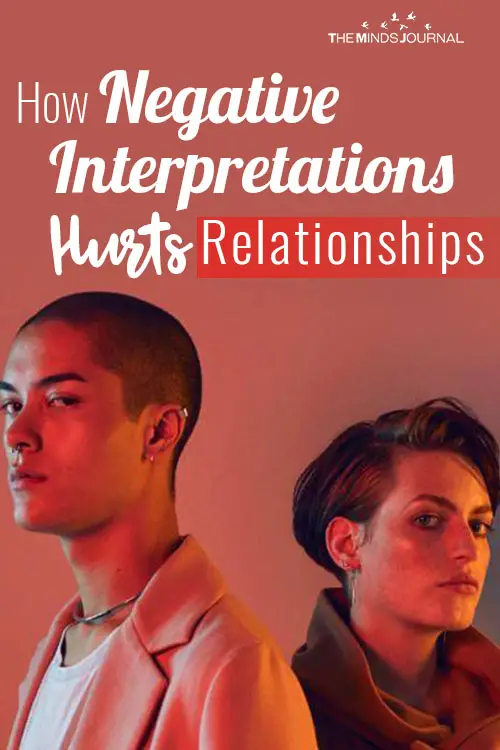
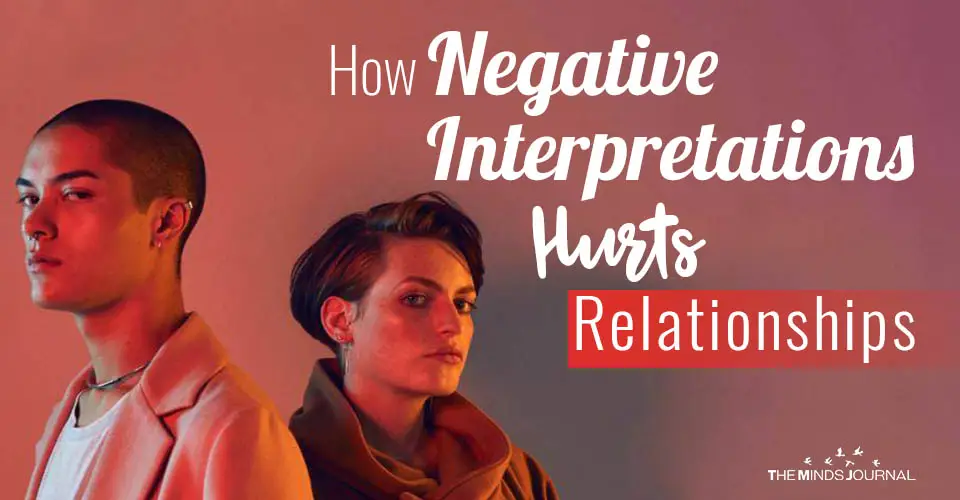







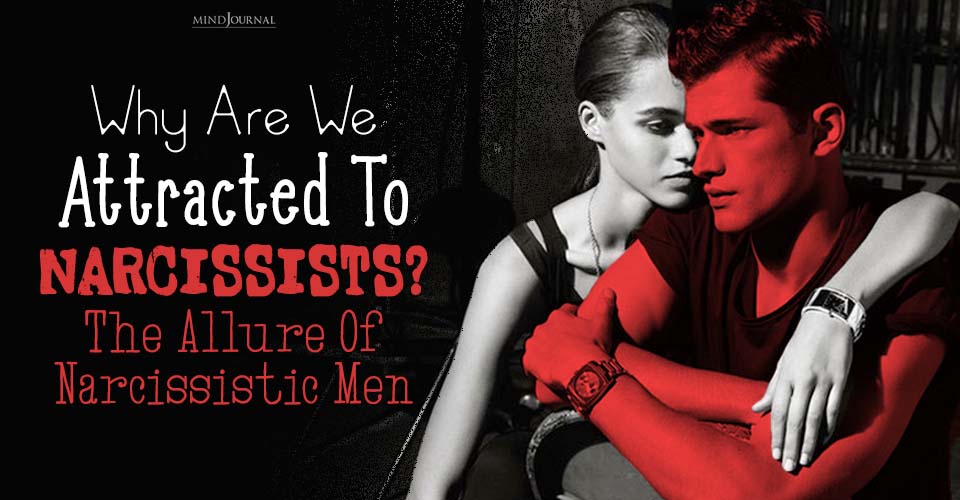
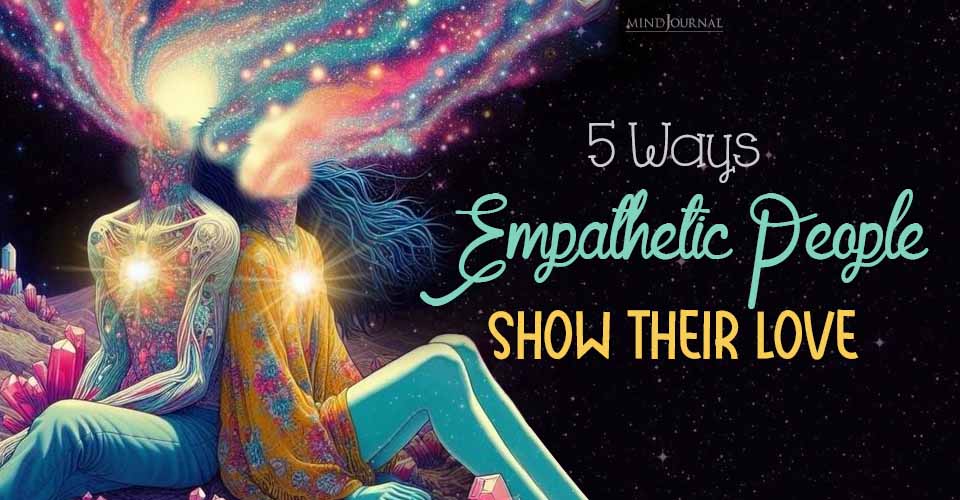
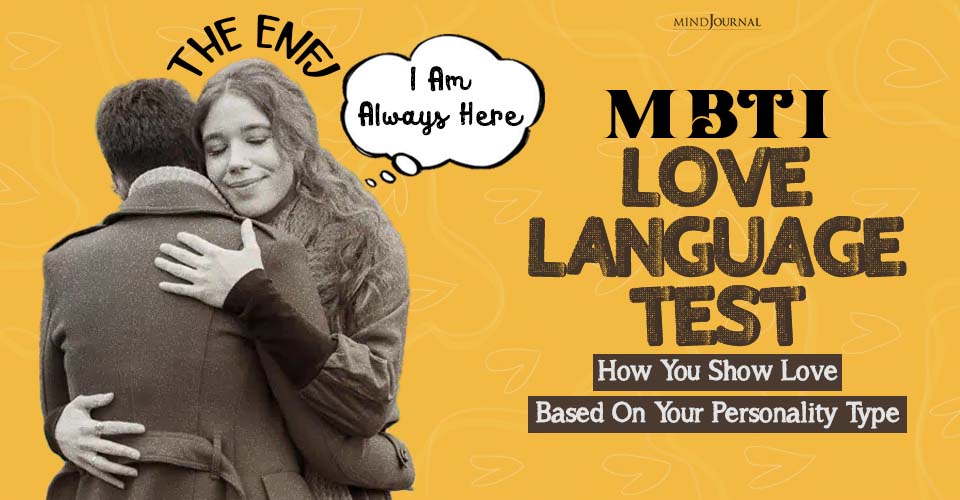
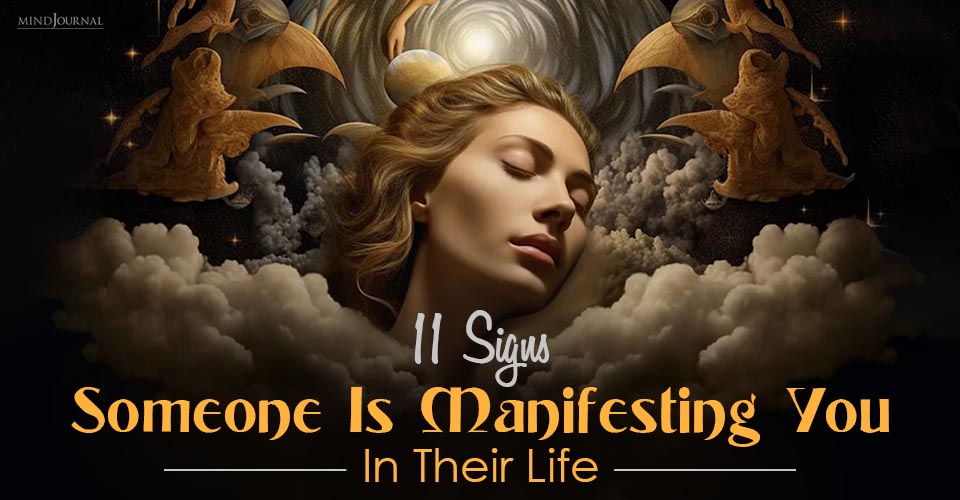

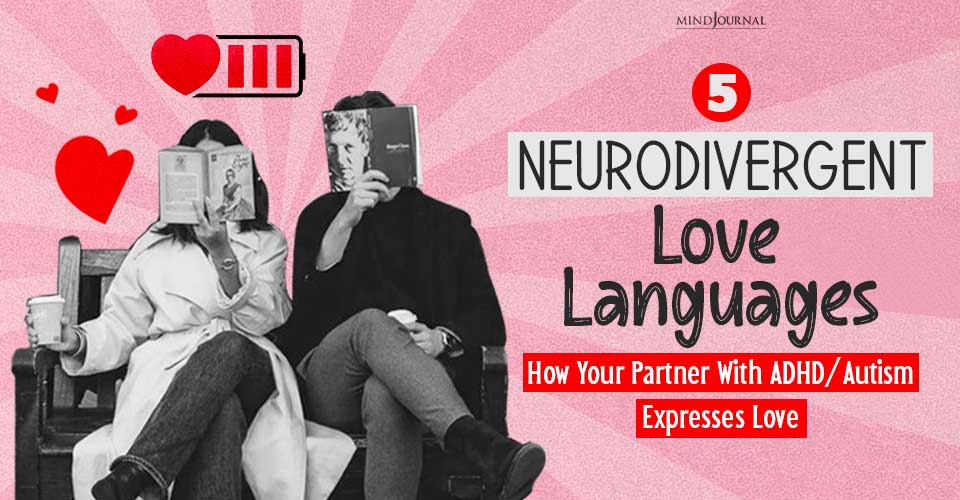
Leave a Reply
You must be logged in to post a comment.